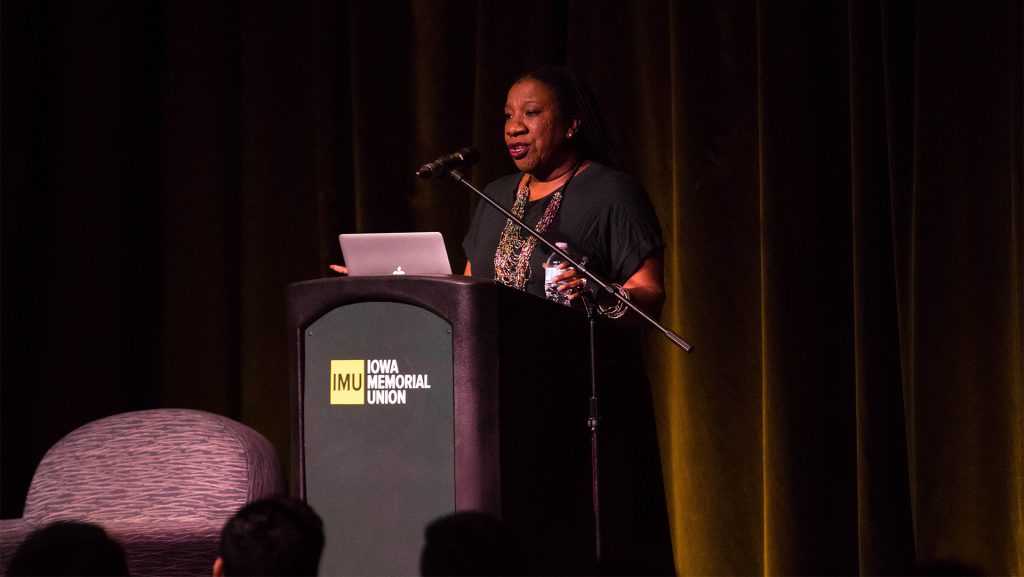On March 27, Tarana Burke visited the University of Iowa campus and shared in conversation with hundreds of students regarding the force and foundation of her #MeToo Movement.
Taylor Newby
On March 27, Tarana Burke visited the University of Iowa and engaged in discussion/conversation with hundreds of students regarding the force and foundation of her #MeToo Movement.
October 2017 marked the month the movement stepped into the public eye, in which conversation was taken from local communities and brought into something bigger — national and global media. The explosion of social-media posts with the hashtag #MeToo came not only with conversation but with the power of personal testimony.
Women from every context and every culture began stepping into the spotlight of social media, taking platforms on Facebook, Twitter, and Instagram, telling the stories they have lived through. But in this, the media grabbed hold of the #MeToo movement and began to focus solely on the stories of powerful, white women in Hollywood.
RELATED: #Metoo movement founder Tarana Burke shares vision
The media manipulated the face of #MeToo, and it began to appear as the women in Hollywood bringing their stories to light — and then, the men involved with those testimonies.
But the #MeToo movement was never about the men, no matter how powerful the positions they held in Hollywood — or any area, for that matter. It has always been about the women who are so brave in their willingness to talk about what they have experienced, seen, and known. It has always been about women with their unapologetic strength and endurance — the women who embody courage as they keep the conversation of #MeToo going in its fifth month of media spotlight.
“It really bothers me that we’ve allowed media to shape this movement,” Burke said during her lecture. “We have to talk about this movement differently … This is a movement for survivors, making sure they have the resources they need to shape their healing journey.”
This is a power-based, centered-on-solution movement. #MeToo extends further than mere conversation, and it merits action, as most movements do. Media are able to hold onto stories delivered by those who are at the forefront of conversation, but communities possess the power to do something about it — to take the conversation back and make this movement into something more than what media have made it out to be.
RELATED: Newby: President Trump speaks against #MeToo, and America keeps talking
“Your power comes from your collective voices,” Burke told students. “Take ownership of this movement.”
And so that’s what we students are to do, in any and every movement — to rally alongside one another in conversation and to take the movement a step further in action by providing resources to survivors, allowing them space to share their stories, and even doing something as simple as voting in a local election.
We are able to make local impacts in national movements such as March For Our Lives, #BlackLivesMatter, #MeToo, Time’s Up, and the list that continues to grow, because there is brokenness in our system and in our world that deserves to be confronted by the fierceness of communities burning with passion for all people, not just the people the media pose as the face of movements.
Though media have the ability to take and manipulate stories, communities have the power to take them back — to shape the message of a movement in what is it meant to mean, not what media have made it appear to us as. We have the power to direct conversation, invoke action, and destine change. We must keep the conversation going.



